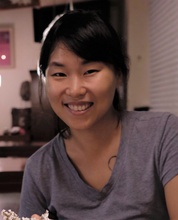The Korean Studies Research Network, an International Programs affinity group, presents “Remedy, Mobility, and the Feminized Consumption of Beauty in Post-Authoritarian South Korea.” This virtual talk takes place on Wednesday, November 15, from 5 – 6:30 (CST), and features Dr. So-Rim Lee from the University of Pennsylvania.
Lee will discuss remedy (koch'ida), a term she uses to refer to changing one’s appearance through medical interventions—including plastic surgery, cosmetic injections, among others—to make life better. Remedy is much broader than medical discourse alone; Lee’s current book project contends that remedy is a critical cultural ethos, a teleological narrative, a social performance of subjectivity, and a material praxis of embodiment where state biopolitics and individual desire for belonging are inextricably entangled.
From the postwar 1950s to the 1970s, remedying the body primarily signified rehabilitating disabled bodies; its grammar was integral to the narrative of nation-building under developmental dictatorship by way of remaking a healthy, re/productive national body marked by continued economic development. However, with the emergence of middle-class consumer culture and rapidly changing mass mediascape in the 1980s-1990s, remedying the body through plastic surgery became normalized in various print media as a gendered, individualized, and hyper-visible consumption practice undertaken by women for upward mobility.
Perusing teen pictorials, feminist magazines, newspapers, and films, this work-in-progress talk explores how the consumerist discourse of remedy in post-authoritarian South Korea was keenly entwined with the discursive marginalization of different yet intersecting strata of women—specifically, housewives and working-class young women/teens.

Dr. So-Rim Lee is a Korea Foundation assistant professor of East Asian languages and civilizations at the University of Pennsylvania. Lee’s research explores the politics of embodiment (living in and with a body) in Korea and the Korean diaspora from the intersection of performance studies, visual and media studies, queer/disability politics, and feminist activisms. Her interdisciplinary work has been published in: positions: asia critique; TDR: The Drama Review; Television & New Media; the Cambridge Companion to K-pop; among others. She is currently completing a book manuscript examining the cultural discourse of plastic surgery in South Korea.
The Korean Studies Research Network (KoRN) aims to bring together scholars whose research focuses on Korea-related topics and to provide mentoring to the younger generation of scholars. It serves as a platform to facilitate collaborative and interdisciplinary research among scholars and graduate students at the University of Iowa and institutions of higher education in the Midwest through seminars, speaker series, and workshops.
This event is made possible through generous support from the Korea Foundation.
Individuals with disabilities are encouraged to attend all University of Iowa-sponsored events. If you are a person with a disability who requires a reasonable accommodation in order to participate in this program, please contact Daniel Vorwerk in advance at daniel-vorwerk@uiowa.edu or 319-467-1619.
International Programs (IP) at the University of Iowa (UI) is committed to enriching the global experience of UI students, faculty, staff, and the general public by leading efforts to promote internationally oriented teaching, research, creative work, and community engagement. IP provides support for international students and scholars, administers scholarships and assistance for students who study, intern, or do research abroad, and provides funding opportunities and grant-writing assistance for faculty engaged in international research. IP shares their stories through various media, and by hosting multiple public engagement activities each year.